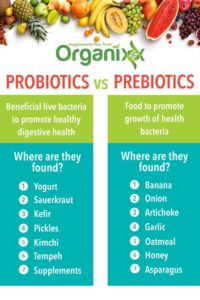
First, why should you read this? Because this data could restore and or protect your health and prolong your healthy life.
23rd October 2018 I watched a great webinar on intestinal health. It was from the same team who brought out the Longevity Project which was probably the best health series I’ve seen.
The data in it was very validating of my selection of the ingredients with which I make my nutrition powders and bars and helped explain some of the remarkable turnarounds people have reported after consuming them.
Here are some notes I quickly typed as it was rolling with some additions to aid your understanding.
And if you don’t think this applies to you, cop this! They took a group of university students in California with no health issues, measured their blood for the presence of pathogens that occur with leaky gut then gave them a meal. Three hours later they again took a blood sample from each and again tested for pathogens. A full 55% of those tested had an increase in pathogens indicating a leaky gut. What was also interesting was a graph shown that showed the ghrelin (the hormone that signals hunger) levels dipped nowhere near as much as they should. This leads people to feel hungrier sooner, to eat more and put on weight.
Now, some definitions so you don’t get tripped up.
Microbiome: A community of microorganisms (such as bacteria, fungi, and viruses) that inhabit a particular environment and especially the collection of microorganisms living in or on the human body.
Dysbiosis: Gr. biosis, living. An unhealthy change in the normal bacterial ecology of a part of body, e.g. of the intestines or the oral cavity.
Keystone species: In architecture, the keystone is the central supporting stone at the apex of an arch. The term “keystone” has been introduced in ecology to characterize species whose effects on their communities are disproportionately large relative to their abundance and which are thought to form the “keystone” of the community’s structure.
Keystone Bacteria: Those whose effect on the overall microbiome is disproportionately large. For instance a good example is the article titled “A single species of gut bacteria can reverse autism-related social behavior in mice” at
https://www.sciencedaily.com/releases/2016/06/160616140723.htm
Mucosa: a membrane rich in mucous glands that lines body passages and cavities (as of the digestive, respiratory, and genitourinary tracts) which connect directly or indirectly with the exterior.
Avoiding gut bacteria dysbiosis:
High diversity of good bacteria is desirable
As are low levels of pathogens
A strong mucosal lining protects the intestinal wall
Low mucosal inflammation is optimal and retains
A strong, tight junctions between the cells of the intestinal lining.
A Chinese study of long lived people (over 90) showed they had a greater diversity of gut microbiome than peple in their 20s.
A high diversity of gut bacteria leads to better health and longer life
Overabundance of certain pathogens does the opposite
Low bacterial diversity and low keystone strains lead to low grade, chronic inflammation associated with most chronic illnesses:
Non-alcoholic fatty liver disease, autoimmune diseases, leptin resistance, diabetes, obesity, metabolic syndrome, chronic constipation, brain inflammation leading to poor memory, brain fog, Alzheimer’s, low seratonin in central nervous system, anxiety, chronic pain, GERD, depression, anorexia nervosa, Hashimoto’s.
HIV patients actually die from mucosal dysfunction – leaky gut – that causes all the other ills.
A primary contributor to insulin resistance and diabetes is dysfunctional gut barrier. This can be caused by a single course of antibiotics.
LPS = lipopolysaccharides (toxins produced by gram negative bacteria) stimulate the release of pain signals to the brain as well as many other problems like Parkinson’s. This causes some people to have non=specific aches and pains for which no cause can be readily identified.
SSRIs (antidepressant drugs) also increase antibiotic resistance in the bowel.
Mucosa houses the immune response
First problem is a lack of diversity of good bacteria and an over abundance of bad bacteria which allows bad bacteria to degrade the mucsosa which generates the leaky gut.
Inflamed intestinal wall lining cells leads to leaky gut.
Leaky gut allows pathogens to pass the barrier and enter the blood stream.
Meta analysis papers show the following:
If we can intelligently moderate the bacterial community we can curb many conditions.
People with inflammatory bowel conditions (coeliac, IBS, Crohn’s, IBD) have low diversity.
We have natural protective mechanisms in our body to prevent many of the health problems from which we suffer.
We need to enhance and not disrupt them (with antibiotics and vaccines).
If we can fix the mucosal dysbiosis we can rectify many of the health issues that plague us.
Practical Solutions:
Stool tests are of little value – they don’t test diversity.
Antimicrobials to address those bad bacteria highlighted as present in a stool test make things worse as they also kill good guys.
Diversity and keystone strains are important but not measured in a stool test.
Immunoglobulin treatment (targets specific bacteria) can be very effective – IgG, IgM and IgA. Neutralise toxins.
Antioxidant therapy is also effective: Carotenoids, L-carnitine, lipoic acid, CoQ10, taurine etc.
Omega 3 fatty acids higher in EPA help with gut inflammation and increase two keystone bacteria: akkermansia and faecalibacterium.
Intermittent fasting also increases the akkermansia and faecalibacterium bacteria.
Two key prebiotics (oligosacharides) increase both.
Polyphenol (grapes, pears, apple, cherries and berries contain 200-300 mg of polyphenol per 100 grams) intake increases akkermansia.
Red wine, chocolates and coffee also help.
L-Glutamine and zinc help too.
Bacterial Spores can heal leaking gut in 30 days.
Fermented foods also increase the population of good bacteria in the gut.
